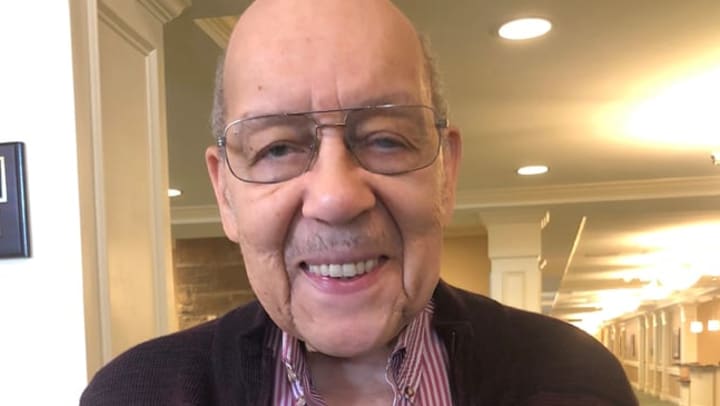After experiencing various hardships during his childhood, Dr. Kenyon C. Burke was inspired to become an advocate for social justice, eventually transforming the National Council of Churches into a powerful force.
Dr. Burke was born Sept. 25, 1930 to Kenyon T. Burke and Parthenia M. Clinton in Cleveland, Ohio.
Kenyon Burke attended Ohio State University and later was a union organizer who organized the local Red Caps, or African-American railway station porters, under the International Brotherhood of Red Caps, a union supported by A. Philip Randolph’s Brotherhood of Sleeping Car Porters. His mother was a teacher in Cincinnati, but when Dr. Burke’s family moved to Cleveland, she discovered she could not get hired as a married woman. She therefore became a social worker and managed a mobile clinic for Planned Parenthood.
The Burke family first attended St. Andrew’s Episcopal Church in Cincinnati and then St. Andrew’s in Cleveland, where Dr. Burke was confirmed.
While growing up Dr. Burke witnessed the economic hardships of the Great Depression, Jews fleeing Europe before and during World War II, and racist oppression in Jim Crow America.
These experiences, along with his family and his early exposures to the Episcopal Church and an Ecumenical upbringing, laid the foundations for a life oriented toward social justice.
Following high school, Dr. Burke attended Bowling Green University, though his studies were temporarily interrupted by a tour of duty in the U.S. Air Force during the Korean War.
Once home, he married Dorothy J. McIntyre, a former classmate from his high school Spanish class, in 1953. He then returned with her to Bowling Green to graduate with a bachelor’s degree in psychology and a minor in political science.
The couple then moved to New Jersey, where Dr. Burke intended to go to law school. He was accepted into law school but had become more interested in his job with the State Employment Service, where he administered psychological testing. He moved on to work at the New Jersey Rehabilitation Commission, where he conducted experiments in counseling in conjunction with Seton Hall University.
He then began working for the Urban League of Essex County in Newark as the Associate Executive Director of Employment and Economic Development, which is how he became involved with the Civil Rights Movement. His work with the Urban League earned him attention from the Anti-Defamation League, where he eventually was hired.
While living in New Jersey and working in New York, Dr. Burke obtained a master’s degree from Columbia University in counseling and psychology, with a specialization in vocational counseling. Though he was initially hesitant, his friend on the faculty of the Rutgers University School of Education soon persuaded him to attend Rutgers for his doctorate in Education and Public Policy.
After the completion of his degrees, Dr. Burke served as Associate Director of Programs with the National Association for the Advancement of Colored People and eventually as the Community Affairs Director for Planned Parenthood.
In 1980, Dr. Burke began working for the National Council of Churches. During his tenure, he transformed the Division of Church and Society from a heavily indebted, dysfunctional branch of the NCC into a highly effective, powerful, and influential force for social justice in denominational life and beyond, confronting every major social justice issue in the United States throughout the 1980s. This engagement with social justice was unprecedented for the NCC. Dr. Burke retired from this position into 1994.
Dr. Burke’s wife, Dorothy, passed away on Sunday, June 4, 2017 at the age of 86. Currently a resident of Waltonwood Ashburn, Dr. Burke has two sons, Gregory P. Burke and Steven A. Burke, and one grandson, Clinton R. Burke.


